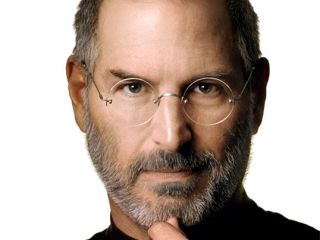That left another question: When Apple allowed the iPod to be compatible with Windows machines,
但这又带来了另一个问题:如果苹果允许iPod和Windows计算机兼容,
should it also create a version of iTunes to serve as the music-management software for those Windows users?
那么它是否要为Windows用户开发一个新版本的iTunes音乐管理软件?
As usual, Jobs believed the hardware and software should go together:
和往常一样,乔布斯认为硬件和软件应该一体化。
The user experience depended on the iPod working in complete sync (so to speak) with iTunes software on the computer.
用户体验依赖于iPod和计算机上的iTunes软件的完全同步(从某种意义上可以这么说)。
Schiller was opposed. "I thought that was crazy, since we don't make Windows software," Schiller recalled.
席勒反对专门制作一个软件,他回忆说:“我觉得这样做太荒谬了,因为我们又不是做Windows软件的。
"But Steve kept arguing, 'If we're going to do it, we should do it right.'"
但是史蒂夫一直坚持说:‘既然我们要做这件事,就应该做得漂亮。’”
Schiller prevailed at first.
席勒的意见起初占了上风。
Apple decided to allow the iPod to work with Windows by using software from MusicMatch, an outside company.
苹果先通过一家外部公司MusicMatch的软件来实现iPod和Windows系统兼容。

But the software was so clunky that it proved Jobs's point,
但是这个软件太笨拙了,这也证明了乔布斯的观点是对的,
and Apple embarked on a fast-track effort to produce iTunes for Windows.
之后,苹果迅速为制作Windows版本的iTunes迈出了第一步。
Jobs recalled: To make the iPod work on PCs,
乔布斯回忆道:为了让iPod在Windows计算机上使用,
we initially partnered with another company that had a jukebox,
我们起初和一个制作播放器软件的公司合作,
gave them the secret sauce to connect to the iPod, and they did a crappy job.
并告诉了他们连接iPod的秘诀,但是他们做得太差了。
That was the worst of all worlds, because this other company was controlling a big piece of the user experience.
这是整个世界上最糟糕的事情,因为这家公司控制了用户体验中的关键部分。
So we lived with this crappy outside jukebox for about six months, and then we finally got iTunes written for Windows.
所以我们容忍了这个讨厌的外部播放器长达6个月,之后我们终于写出了Windows版的iTunes软件。
In the end, you just don't want someone else to control a big part of the user experience.
最终,你还是不想让其他人去控制用户体验。
People may disagree with me, but I am pretty consistent about that.
人们可能对此有非议,但我一直非常坚持这个做法。












